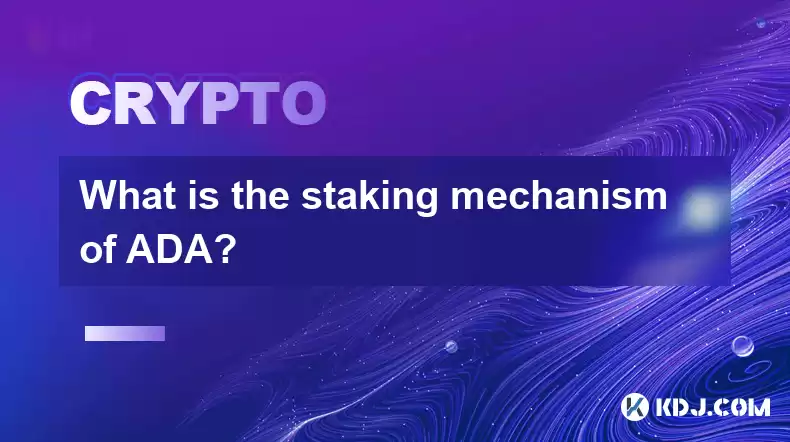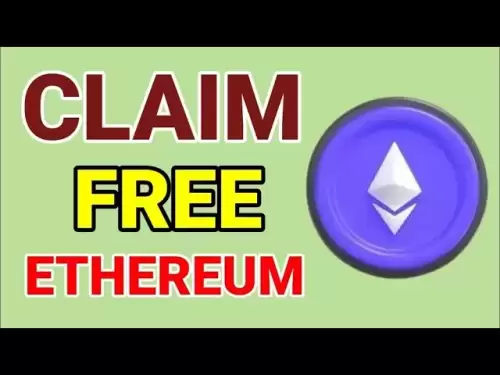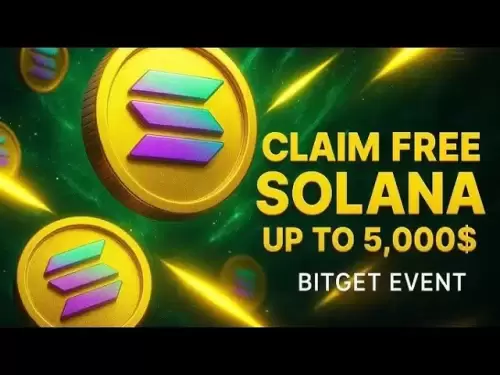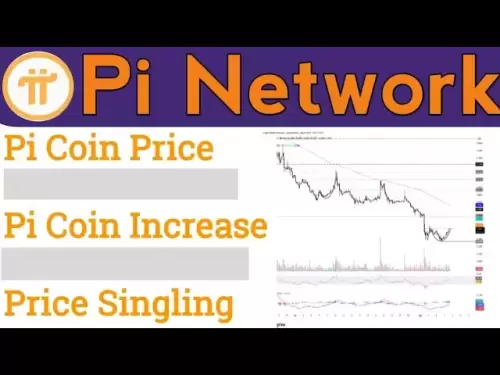-
 Bitcoin
Bitcoin $118300
1.01% -
 Ethereum
Ethereum $4215
0.69% -
 XRP
XRP $3.198
-3.83% -
 Tether USDt
Tether USDt $1.000
-0.01% -
 BNB
BNB $803.4
-0.53% -
 Solana
Solana $180.3
-0.67% -
 USDC
USDC $0.9998
-0.01% -
 Dogecoin
Dogecoin $0.2334
-1.49% -
 TRON
TRON $0.3394
0.86% -
 Cardano
Cardano $0.7980
-1.45% -
 Chainlink
Chainlink $22.19
6.65% -
 Hyperliquid
Hyperliquid $43.41
0.13% -
 Stellar
Stellar $0.4407
-3.13% -
 Sui
Sui $3.843
-2.24% -
 Bitcoin Cash
Bitcoin Cash $564.7
-3.74% -
 Hedera
Hedera $0.2588
-3.41% -
 Ethena USDe
Ethena USDe $1.001
0.00% -
 Avalanche
Avalanche $23.64
-3.37% -
 Litecoin
Litecoin $120.0
-4.01% -
 Toncoin
Toncoin $3.342
-1.11% -
 UNUS SED LEO
UNUS SED LEO $9.038
0.60% -
 Shiba Inu
Shiba Inu $0.00001347
-0.81% -
 Uniswap
Uniswap $10.69
-4.58% -
 Polkadot
Polkadot $4.034
-1.30% -
 Dai
Dai $1.000
0.01% -
 Bitget Token
Bitget Token $4.472
-1.52% -
 Cronos
Cronos $0.1571
-3.04% -
 Pepe
Pepe $0.00001207
-2.21% -
 Monero
Monero $273.8
-3.19% -
 Ethena
Ethena $0.7520
2.75%
What is the staking mechanism of ADA?
Cardano's ADA staking lets users earn rewards by delegating their ADA to a stake pool, participating in Proof-of-Stake consensus. Choosing a reputable pool with low fees and reasonable saturation is key to maximizing returns while minimizing risks.
Mar 05, 2025 at 10:00 am

Key Points:
- Cardano's ADA staking mechanism allows users to earn rewards by locking up their ADA tokens and participating in the network's consensus mechanism, Proof-of-Stake (PoS).
- Staking requires a minimum amount of ADA and involves delegating your tokens to a stake pool operated by a third party.
- Rewards are distributed proportionally based on the stake pool's performance and the total amount staked within that pool.
- The process is relatively straightforward, but choosing a reputable stake pool is crucial for maximizing rewards and minimizing risk.
- Understanding the associated fees, minimum stake amounts, and potential risks is essential before participating.
What is the staking mechanism of ADA?
Cardano's ADA staking mechanism is a core component of its Proof-of-Stake (PoS) consensus algorithm. Unlike Proof-of-Work (PoW) systems like Bitcoin, which rely on energy-intensive mining, PoS secures the network through token holders actively participating in the validation of transactions. This participation is achieved through staking. By locking up their ADA, users contribute to the network's security and earn rewards in return.
How does ADA staking work?
Staking ADA involves delegating your tokens to a stake pool. Stake pools are entities operated by individuals or organizations that collate the staked ADA from multiple users to participate in block creation and validation. Think of them as validators in the Cardano network. The more ADA a stake pool holds, the higher its chances of being selected to create and validate blocks.
What are stake pools?
Stake pools are crucial intermediaries in Cardano's staking system. They are run by independent operators who manage the technical aspects of staking, such as proposing blocks and verifying transactions. Choosing a reputable stake pool is vital; factors to consider include pool saturation, performance, fees, and the operator's reputation. A saturated pool might offer lower rewards due to higher competition for block creation.
How to stake ADA?
Staking ADA is generally a straightforward process. However, the exact steps might vary slightly depending on the wallet you're using. Most wallets that support ADA staking offer an integrated process. Here's a general outline:
- Choose a wallet: Select a wallet compatible with ADA staking. Popular choices include Daedalus and Yoroi.
- Select a stake pool: Research and choose a stake pool based on factors like performance, fees, and saturation.
- Delegate your ADA: In your chosen wallet, select the "Staking" or "Delegation" option and choose your preferred stake pool. Specify the amount of ADA you wish to stake.
- Wait for rewards: Once your ADA is delegated, you'll start earning rewards. The frequency of reward payouts varies depending on the stake pool's activity.
What are the rewards for staking ADA?
The rewards earned from staking ADA are typically expressed as a percentage annual return (APR). The APR varies depending on several factors, primarily the performance of the chosen stake pool and the overall network activity. Higher-performing pools tend to distribute more rewards. However, it's important to remember that APR is not guaranteed and can fluctuate. Also, remember that fees are deducted from your rewards.
What are the fees involved in staking ADA?
Staking ADA involves certain fees. These fees are typically deducted from your rewards and are primarily paid to the stake pool operator for their services. These fees vary between pools and should be considered when choosing a pool. Furthermore, there might be transaction fees associated with delegating your ADA to a pool, though these are generally minimal.
What is the minimum ADA required for staking?
While there's no fixed minimum ADA requirement to stake, it's generally recommended to have a sufficient amount to offset potential losses from low rewards or pool inactivity. Staking smaller amounts might not yield significant returns, especially if the chosen pool has high saturation. The practical minimum depends on the chosen pool's policies and the desired level of risk tolerance.
What are the risks involved in staking ADA?
Although generally considered safe, staking ADA carries some inherent risks. These include:
- Pool operator risk: Choosing an unreliable or malicious pool operator could lead to loss of funds. Thorough research is crucial.
- Reward volatility: The APR can fluctuate depending on network activity and pool performance.
- Wallet security: Ensuring your wallet's security is paramount to protect your staked ADA.
What happens if I unstake my ADA?
Unstaking your ADA involves removing your delegation from the chosen pool. There's usually a short unbonding period, which is the time it takes for your ADA to become available for withdrawal after initiating the unstaking process. This period is designed to maintain network stability.
What are the differences between staking ADA in Daedalus and Yoroi wallets?
Both Daedalus and Yoroi are popular Cardano wallets that support staking, but they have some differences. Daedalus is a full node wallet, meaning it downloads the entire Cardano blockchain, while Yoroi is a lightweight wallet. This affects synchronization speed and storage requirements. The staking process itself is relatively similar in both, but the user interface might vary slightly.
How do I choose a good stake pool?
Choosing a reputable stake pool is crucial for successful ADA staking. Consider these factors:
- Pledge: A higher pledge indicates a stronger commitment from the pool operator.
- Saturation: Avoid overly saturated pools, as this reduces your chances of earning rewards.
- Fees: Compare fees across different pools to maximize your rewards.
- Uptime: Look for pools with consistently high uptime to ensure reliable participation in block creation.
- Reputation: Research the pool operator's reputation and track record.
Common Questions and Answers:
Q: Is staking ADA risky? A: Staking ADA involves some risk, mainly concerning pool operator reliability and reward volatility. Thorough research and careful pool selection can mitigate these risks significantly.
Q: How often do I receive rewards? A: The frequency of reward payouts varies depending on the stake pool's activity, but it's typically not a daily occurrence.
Q: Can I stake ADA without a minimum amount? A: While there isn't a hard minimum, staking very small amounts might not be profitable due to low returns.
Q: Can I unstake my ADA anytime? A: You can unstake your ADA, but there's typically an unbonding period before you can withdraw your funds.
Q: What is the best stake pool? A: There's no single "best" stake pool. The ideal pool depends on your individual preferences and risk tolerance. Research is crucial.
Disclaimer:info@kdj.com
The information provided is not trading advice. kdj.com does not assume any responsibility for any investments made based on the information provided in this article. Cryptocurrencies are highly volatile and it is highly recommended that you invest with caution after thorough research!
If you believe that the content used on this website infringes your copyright, please contact us immediately (info@kdj.com) and we will delete it promptly.
- Dogwifhat's Comeback: Solana Meme Coin Mania and Beyond!
- 2025-08-10 18:30:15
- Shiba Inu Price Drop Alert: Can Google AI Predict the Future?
- 2025-08-10 18:30:15
- NEAR Protocol Rebound: Eyes on $4.63 as Bullish Momentum Builds
- 2025-08-10 17:30:13
- Bitcoin Cash Halving: Will the Price Fall or Fly?
- 2025-08-10 17:30:13
- Uniswap (UNI) Under Bearish Pressure: A Technical Analysis Deep Dive
- 2025-08-10 17:30:15
- DOT Price on the Rise: Polkadot's Bullish Momentum Heats Up!
- 2025-08-10 17:30:15
Related knowledge

How to purchase Aragon (ANT)?
Aug 09,2025 at 11:56pm
Understanding Aragon (ANT) and Its PurposeAragon (ANT) is a decentralized governance token that powers the Aragon Network, a platform built on the Eth...

What is the most secure way to buy Ocean Protocol (OCEAN)?
Aug 10,2025 at 01:01pm
Understanding Ocean Protocol (OCEAN) and Its EcosystemOcean Protocol (OCEAN) is a decentralized data exchange platform built on blockchain technology,...

Where can I buy UMA (UMA)?
Aug 07,2025 at 06:42pm
Understanding UMA and Its Role in Decentralized FinanceUMA (Universal Market Access) is an Ethereum-based decentralized finance (DeFi) protocol design...

How to buy Storj (STORJ) tokens?
Aug 09,2025 at 07:28am
Understanding Storj (STORJ) and Its Role in Decentralized StorageStorj is a decentralized cloud storage platform that leverages blockchain technology ...

What is the best app to buy Nano (NANO)?
Aug 09,2025 at 03:35am
Understanding Nano (NANO) and Its Unique FeaturesNano is a feeless, instant cryptocurrency designed for fast peer-to-peer transactions. Unlike many ot...

Where can I purchase Siacoin (SC)?
Aug 08,2025 at 11:14am
Understanding Siacoin (SC) and Its Role in the Sia NetworkSiacoin (SC) is the native cryptocurrency of the Sia decentralized cloud storage platform, a...

How to purchase Aragon (ANT)?
Aug 09,2025 at 11:56pm
Understanding Aragon (ANT) and Its PurposeAragon (ANT) is a decentralized governance token that powers the Aragon Network, a platform built on the Eth...

What is the most secure way to buy Ocean Protocol (OCEAN)?
Aug 10,2025 at 01:01pm
Understanding Ocean Protocol (OCEAN) and Its EcosystemOcean Protocol (OCEAN) is a decentralized data exchange platform built on blockchain technology,...

Where can I buy UMA (UMA)?
Aug 07,2025 at 06:42pm
Understanding UMA and Its Role in Decentralized FinanceUMA (Universal Market Access) is an Ethereum-based decentralized finance (DeFi) protocol design...

How to buy Storj (STORJ) tokens?
Aug 09,2025 at 07:28am
Understanding Storj (STORJ) and Its Role in Decentralized StorageStorj is a decentralized cloud storage platform that leverages blockchain technology ...

What is the best app to buy Nano (NANO)?
Aug 09,2025 at 03:35am
Understanding Nano (NANO) and Its Unique FeaturesNano is a feeless, instant cryptocurrency designed for fast peer-to-peer transactions. Unlike many ot...

Where can I purchase Siacoin (SC)?
Aug 08,2025 at 11:14am
Understanding Siacoin (SC) and Its Role in the Sia NetworkSiacoin (SC) is the native cryptocurrency of the Sia decentralized cloud storage platform, a...
See all articles

























































































